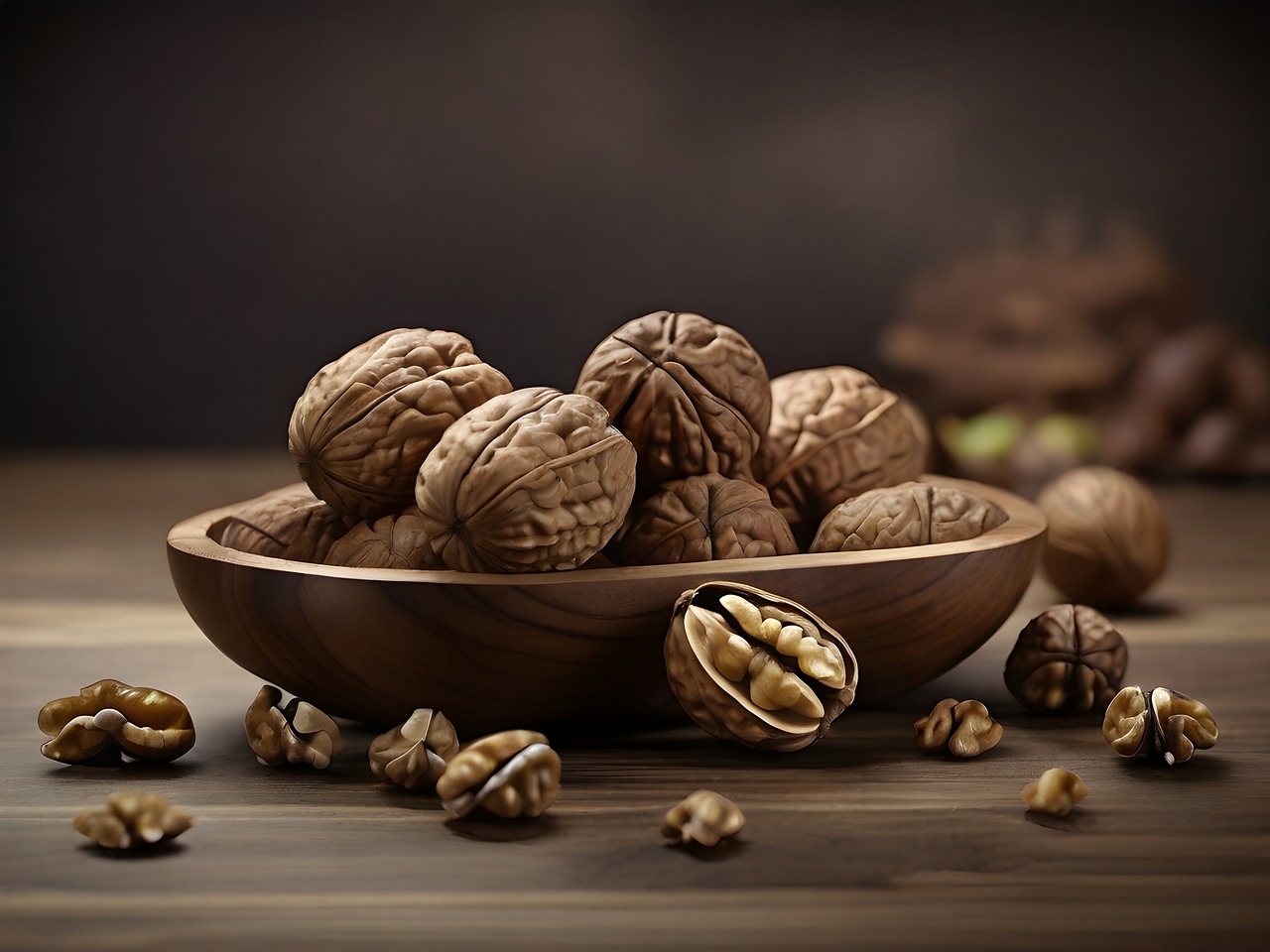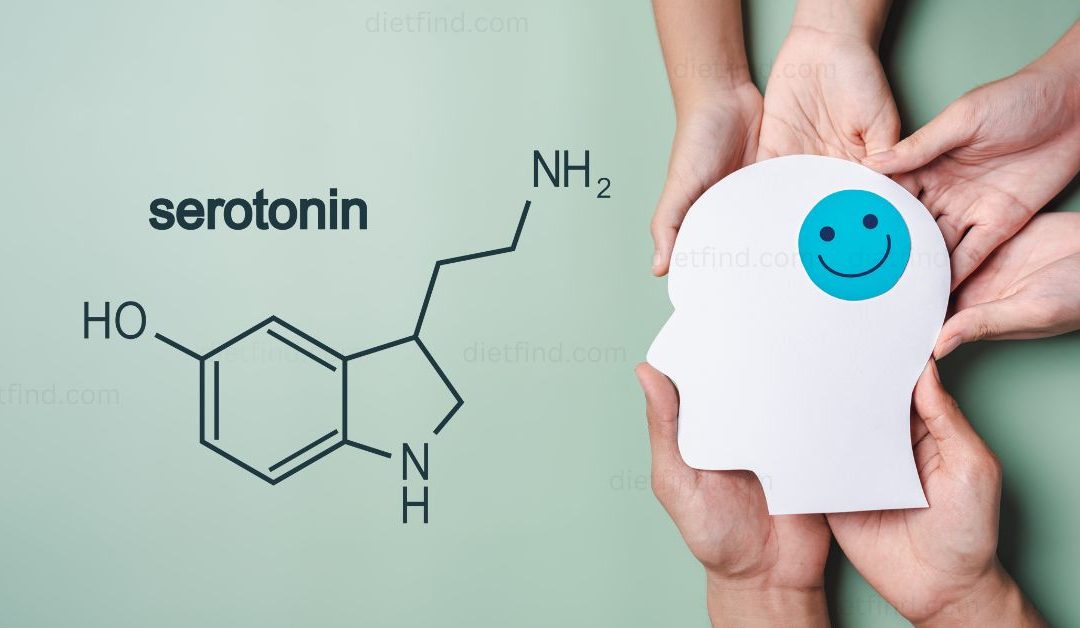Are you curious about the connection between serotonin and mood? In this article, we will explore the role of serotonin in regulating our emotions and discuss the foods that can naturally enhance its production. Whether you’re seeking ways to improve your mood or simply interested in learning more about the fascinating world of nutrition, this article will provide you with valuable insights into the vital role serotonin plays in our well-being. So, grab a seat and get ready to discover the power of serotonin and the foods that can help uplift your spirits.
What is Serotonin?
Serotonin is a neurotransmitter, which means it is a chemical messenger that helps relay signals between nerve cells in the brain. It is often referred to as the “feel-good” hormone because of its impact on mood and emotions. Serotonin is synthesized from the amino acid tryptophan and is involved in various bodily functions, including mood regulation, appetite, sleep, and social behavior.
Functions
Serotonin plays a crucial role in regulating mood and emotions. It helps to stabilize and improve mood, promoting feelings of happiness, well-being, and contentment. Additionally, serotonin is involved in controlling appetite and promoting a sense of satiety. It also contributes to healthy sleep patterns and helps regulate the body’s internal clock. Furthermore, serotonin is essential for healthy social behavior and plays a part in cognition, memory, and learning.
The Role of Serotonin in Mood
Serotonin has a significant impact on mood and emotions, influencing feelings of happiness, calmness, and overall well-being. It is responsible for regulating the brain’s reward and pleasure centers, which are essential for experiencing positive emotions. When serotonin levels are balanced, individuals are generally more content and have a better overall mood.
Effects of Serotonin on Mood
When serotonin levels are optimal, individuals tend to experience a positive mood, increased motivation, and improved self-esteem. Serotonin helps regulate stress levels and leads to a sense of calmness and relaxation. Adequate levels of serotonin contribute to resilience, enabling individuals to cope with stress and emotional challenges more effectively. On the other hand, low levels of serotonin have been associated with mood disorders, including depression and anxiety.
Serotonin Imbalance and Mood Disorders
Serotonin imbalance can contribute to the development of mood disorders, such as depression and anxiety. When serotonin levels are low, individuals may experience symptoms such as persistent sadness, loss of interest in activities, low energy, sleep disturbances, and changes in appetite. Serotonin reuptake inhibitors (SSRIs), a common class of antidepressant medications, work by increasing serotonin levels in the brain to alleviate symptoms of depression and improve mood.
Factors Affecting Serotonin Production
Serotonin production can be influenced by various factors, including genetics, diet and nutrition, exercise, and exposure to sunlight. Understanding these factors can help individuals take proactive steps to enhance serotonin production naturally.
Genetics
Genetics plays a role in serotonin production and regulation. Some individuals may have genetic variations that affect the functioning of enzymes involved in serotonin synthesis. Therefore, certain individuals may naturally have lower or higher serotonin levels, which can contribute to differences in mood and emotional well-being.
Diet and Nutrition
Diet and nutrition have a significant impact on serotonin production. Consuming a balanced diet that includes essential nutrients is crucial for adequate serotonin synthesis. Certain nutrients play a specific role in serotonin production, including tryptophan, omega-3 fatty acids, vitamin B6, magnesium, and protein.
Exercise
Regular exercise has been shown to increase serotonin production in the brain. Physical activity stimulates the release of serotonin, leading to enhanced mood and a greater sense of well-being. Engaging in activities such as walking, jogging, cycling, or participating in sports can help boost serotonin levels naturally.
Sunlight
Exposure to sunlight triggers the production of serotonin in the brain. Sunlight stimulates the release of serotonin and helps regulate the body’s internal clock. Spending time outdoors, especially during daylight hours, can contribute to increased serotonin levels and improved mood.
Foods that Boost Serotonin Production
In addition to lifestyle factors, certain foods can enhance serotonin production in the body. Including these foods in your diet can help support optimal serotonin levels and promote a positive mood.
Complex Carbohydrates
Complex carbohydrates are an excellent source of tryptophan, an essential amino acid necessary for serotonin synthesis. Tryptophan is a precursor to serotonin, meaning it is a building block for this neurotransmitter. Foods such as whole grains, legumes, fruits, and vegetables are rich in complex carbohydrates.
Foods High in Tryptophan
Tryptophan is an essential amino acid that plays a crucial role in serotonin production. Including foods high in tryptophan in your diet can increase the availability of this amino acid for serotonin synthesis. Good sources of tryptophan include turkey, chicken, eggs, dairy products, nuts, seeds, tofu, and seafood.
Omega-3 Fatty Acids
Omega-3 fatty acids are healthy fats that are beneficial for brain health and serotonin production. These fatty acids help improve the flexibility and fluidity of cell membranes, allowing for better communication between cells. Sources of omega-3 fatty acids include fatty fish such as salmon, mackerel, and sardines, as well as flaxseeds, chia seeds, and walnuts.

Vitamin B6
Vitamin B6 plays a vital role in serotonin synthesis. It is involved in converting tryptophan into serotonin, making it an essential nutrient for optimal serotonin production. Good sources of vitamin B6 include bananas, avocados, chicken, potatoes, sunflower seeds, and lentils.
Magnesium
Magnesium is a mineral that supports serotonin production in the brain. It plays a role in the conversion of tryptophan to serotonin and helps regulate neuronal activity. Excellent sources of magnesium include dark leafy greens, nuts, seeds, whole grains, beans, and legumes.
Protein
Protein-rich foods contain amino acids, including tryptophan, which is necessary for serotonin synthesis. Including adequate protein in your diet ensures a sufficient supply of tryptophan for serotonin production. Good sources of protein include lean meats, poultry, fish, eggs, dairy products, legumes, and tofu.
Conclusion
Serotonin is a crucial neurotransmitter involved in mood regulation, appetite control, sleep, and social behavior. Imbalances in serotonin levels can contribute to mood disorders such as depression and anxiety. Various factors, including genetics, diet and nutrition, exercise, and sunlight exposure, can affect serotonin production. By incorporating foods rich in complex carbohydrates, tryptophan, omega-3 fatty acids, vitamin B6, magnesium, and protein into your diet, you can support optimal serotonin synthesis and promote a positive mood. Additionally, engaging in regular exercise and spending time outdoors can also enhance serotonin levels naturally. Taking a holistic approach to both lifestyle and nutrition can help individuals maintain optimal serotonin levels and improve overall well-being.
© 2024 by DietFind.com. All rights reserved. No part of this document may be reproduced or transmitted in any form or by any means, electronic, mechanical, photocopying, recording, or otherwise, without prior written permission of DietFind.com.

